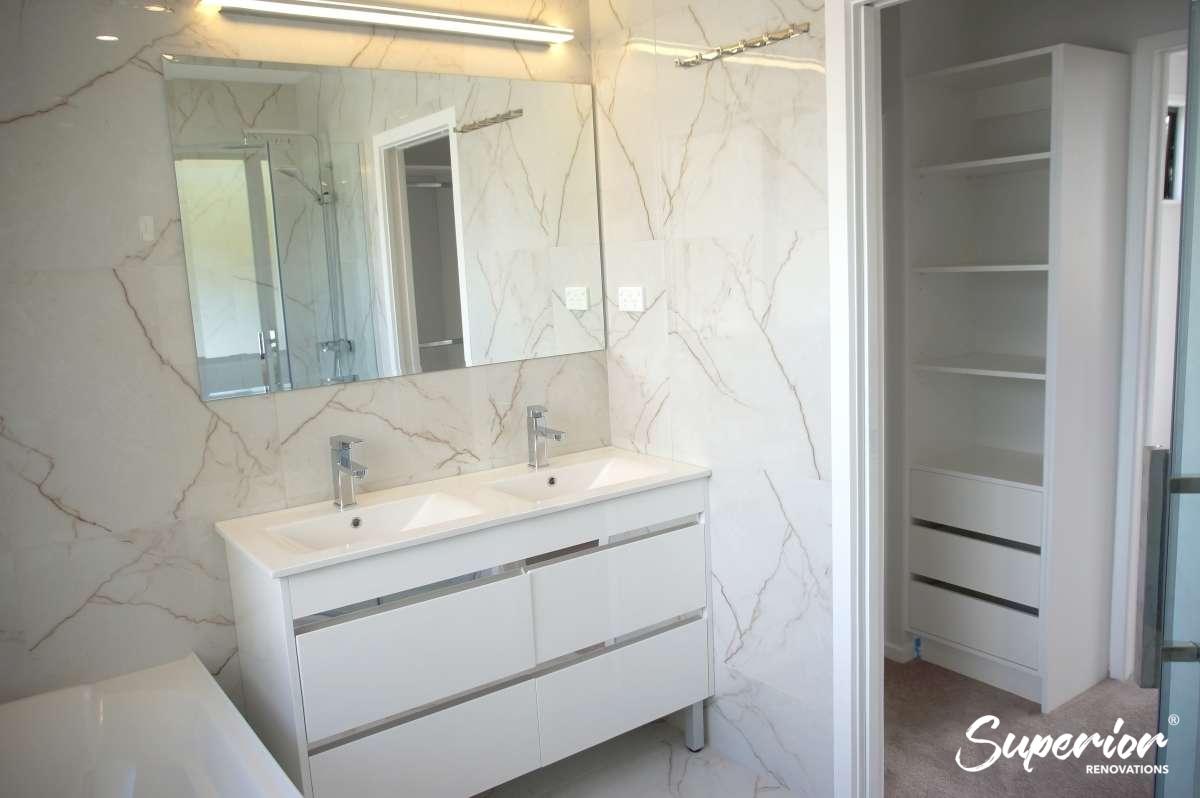
Guide to Renovating Rental/Investment Properties in New Zealand
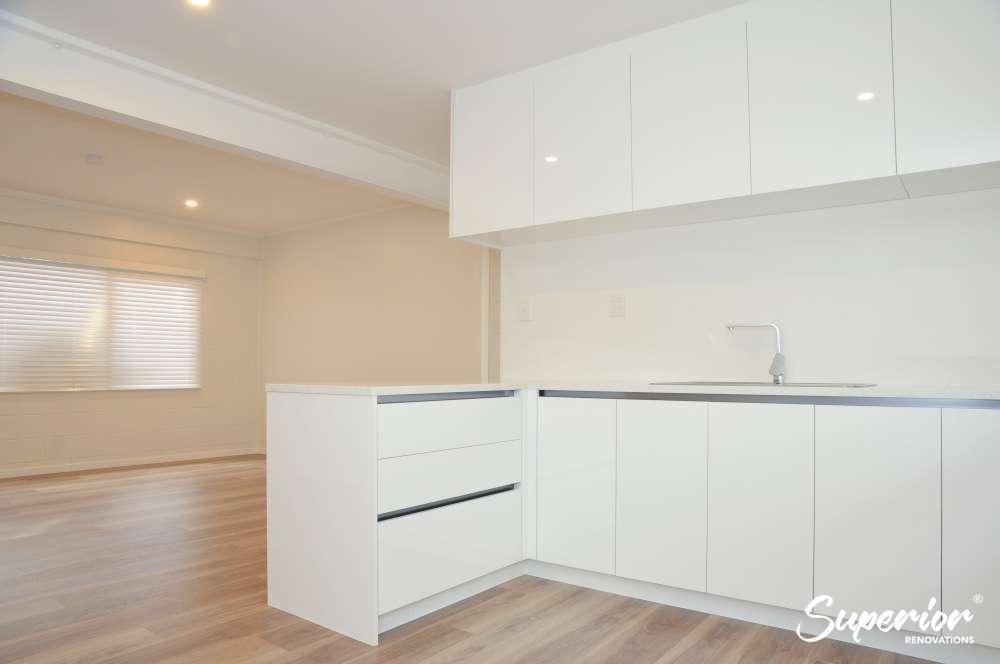
Are you trying to make up your mind about renovating your property or make improvements in advance before a new tenant moves in? or perhaps your renovating to increase the equity in preparation for selling?
When it comes to property investment, it is recommended you review your finances from time to time. Refinancing, at a better mortgage rate could help achieve a higher return. You may also want to contact your accountant or tax specialist to see if you qualify for any or further tax benefits.
Should I be spending money to renovate my rental properties, is it worth it?
In this article, I help you understand the maths behind improving your property and why undertaking renovations on your rental property could be financially beneficial, but also why you shouldn’t be renovating as well.
Some rental owners think that renovating their property isn’t financially worthwhile.
Common views from rental/investment property owners:
- It is just a rental property. Even if I put in new fixtures and chattels in it, they will wear out anyway. Why bother?
- I don’t understand much about the renovation. I’m not certain about where to begin or whom to talk to so it’s a bit of a risky investment.
- If I make improvements in my rental property, it will be even better than our own home!
These are all valid points and not wrong to some extent, however we’re going to dig deeper to see what the data says. We will also address some of these questions in this article and hopefully provide you with enough information to make an informed/data driven decision that ultimately puts you financially better off.
If you’re looking for “specific” cost estimates, try our Renovation Cost Calculator Tools
- Bathroom Renovation Cost Calculator
- Kitchen Renovation Cost Calculator
- Reroofing Cost Calculator
- Double Glazing Cost Calculator
- House Extension Cost Calculator
- Custom Kitchen Cabinetry Cost Calculator
Calculating the potential ROI of your rental property after the renovations
A simple and quick way to do so is to approximate the annual rent increase after renovations are done. Then divide that into the renovation cost.
For instance, imagine you spend $7,000 on making improvements to your kitchen between tenancies. We don’t mean setting up a brand new kitchen, but renovations such as repainting walls and cupboards, new floors, replacing bench top or acquiring a new stove.
Consequently, you can obtain a higher rent, probably about $30 every week.
- By attracting higher income earning tenants
- To retain existing tenants with the upgrade (after the increase in rent)
You can determine your return by calculating your yearly rent increase (52 weeks x $30). Then divide your answer into the renovation cost ($7,000). You should get 0.22, and you can multiply this by 100 to get a percentage (22.28%) – and that is your return on investment, which will pay for itself after 3-4 years (assuming you’re not increasing rent further, and you’re not selling).
Real estate investors are always looking for a high return on investment (ROI) when buying rental properties. Higher returns can be achieved and influenced in many ways. Real estate renovation is one of those ways.
Renovated rental units justify a higher rental rate – but it’s important you’re spending on the “right” renovations. There are a couple of other factors behind real estate renovation:
- To maintain or improve the value of the investment property through necessary repairs or replacements
- To increase equity
- Rental property improvements to attract better-qualified tenants
- Tax advantages
- Reduced maintenance
- Lower vacancy rates
Five things you need to know before you consider renovating your rental
- When undertaking renovations on your investment property, avoid looking at it like it’s your own home, it should be a data-driven decision. What you want for your home is not necessarily what your investment needs to ensure best return.
- Create a strict budget and research thoroughly and ensure to create room for contingency for unexpected costs – it is common with renovations – for example, if you’re renovating the bathroom, you may find that there is water damage in the subfloor which is common with the older properties.
- Choosing the right renovations should not only increase the property value but also the rent.
- Good renovations are “bulletproof” In the long term, a durable renovation will outdo a fancy renovation.
- Don’t forget to consult your accountant, finance specialists and local renovation company (project manager) – get all your ducks lined up and make an informed decision based on data.
Renovations that add value in the property
I want to make improvements to my property to add value. To achieve this, I plan to spend $15,000 to paint the interior and replace damaged carpets to increase my property value by $30,000 and similarly raise weekly rent by $30.
Sounds good in theory! But it doesn’t always plan out that way. We can definitely speculate the return on investment, and the increase in rent (but is that what the tenant wants?).
If you are looking to renovate to add value, instead of looking at the “end result” first – begin with focusing on what you are in control of which is choosing what to renovate. By choosing the right renovations to begin with (within your planned budget) backed by data – the end result of the renovations is a given. Rental property owners tend to make the mistake of assuming what they think should justify increase the value or rent, but this subjective thinking leads to making the wrong decisions. Be careful where you get your advice from as well, everyone seems to have an opinion on what they think you should do to your property.
So we’ve put together a list of renovations that proven to add value and justify increasing rent.
-
Kitchen renovations
According to Realtor.com, kitchen and bath remodels offer nearly an 85% ROI, making them sound investments whether renting or selling. In lower income locations, renovating the kitchen can be extremely expensive and not worthwhile. However, there are simple kitchen cheats that you can use to ensure kitchen makeovers are cost-effective and still create an appeal. One of these is purchasing second-hand cabinetry online and using stain-block on your old cabinetwork. Perhaps even consider replacing the kitchen cupboards and draws assuming the carcass of the kitchen is still in good condition. For mid to high income locations, a full kitchen renovation is definitely worth considering because it would appeal more to the target audience. But with both options, consider the value of your property and make sure not to overcapitalise.
-
Street appeal
Although this appears overly simple, re-staining your fence, painting the roof and installing a new letterbox can give your home a new look that appeals to buyers and renters alike. This kind of renovation is best suited during spring when the weather allows you to paint outside, and your paint will dry quickly because of the warm weather. If you’re looking at selling the property, painting the home is the most cost-effective way to give the home a spruce up.
-
Bathroom renovations
A bathroom renovation is widely considered to increase the value of home significantly and it’s been stated by Business Insider that it can be up to a 70% return on investment. Whether a renovation is structural or simply cosmetic, an attractive bathroom will always appeal to the savvy buyer. But again, the decision to make minor alterations to the bathroom or to fully renovate the bathroom comes down to the location of your property (it would resonate with the target audience, eg Location with mostly growing families would prefer to have a bath), and to ensure you’re not over capitalising. Get the right lighting – Plenty of light is essential for a bathroom, but so is a warm and cosy glow. Check your lighting and see what you can change to make your bathroom appeal to your type of buyer.
-
Gardening & Landscaping
A smart garden appeals to everyone, and it all narrows down to your audience in the location (families, working professionals, or flatting situations). One thing to note is always go for plants that don’t need much gardening time or maintenance – don’t expect tenants to look after it (if they do, great!). These may be natives that are endemic to your area. Always ensure that your garden’s front lawn is tidy and trimmed. Also, berms ought to follow suit.
-
Floor Renovations
Carpets in old rentals act as hind outs for various crawling insects, including such as ants. While a carpet can be costly, there are cost-effective options to acquire one. One of these is purchasing in bulk. You will buy them at a reduced price, and you can use the extra carpets across your multiple rentals.
The most common floor renovation for rentals is converting from Carpets to Laminate flooring for multiple reasons such as:
- Laminate flooring is much more durable, which means it will last longer then carpets (which leaves marks). After a while, carpet will start to fray and show obvious signs of wear. Although landlords can request for the carpets to be cleaned, it’s not going to stop it from general wear and tear. It’s important to note, landlords cannot get compensation for fair wear and tear, and distressed carpets usually fall into that category.
- Tenants are becoming more health conscious and carpets are much more prone to attracting and clinging onto dirt, which means they get dirty quickly and need to be cleaned regularly. So it’s preferable to both buyers and tenants that if they’re choosing a property, laminate flooring would be ideal.
- Laminate flooring is easy to clean and maintain, the process only requires a very moderately damp cloth and a sweep. For a thorough carpet clean, a specialist vacuum and shampoo is required, and it becomes more of a problem when there is spills/stains (which in some cases don’t come out)
-
Painting
Always seek professional painters to do the job – it seems like something that can be done by yourself but if not done properly, it’s very obvious and visible. Here’s an article that outlines whether you should DIY or Choose a Professional Painter. The most common painting project clients undertake is interior and exterior painting (not so much roof, normally a roof wash is sufficient), or replacing wallpaper to painted walls. Painting the property is one of the easiest and most cost-effective way to improve the perceived value of the property especially if surfaces look tired – it is also value added to potential buyers and renters. Check out blogs from Superior Painters (North Shore) for more information on painting your rental property.
-
New curtains and Blinds
Normally something easily forgotten – but it does make a difference. To give your property a refreshing impression before selling or renting it. Installing/purchasing new blinds and curtains can be as low as $2,500 for standard 3 bed home (8 windows).
-
Call in your mates
While you can have someone to provide their services in your house within a day, you can accomplish the same tasks or even more in much less time with your mates. Besides, you will have more fun doing it together.
-
Let there be light
Light shades offer decent and stunning looks in your rooms, but they can get pretty dingy after some years. Although it is relatively simple to get a replacement, you can restore their new and fresh look by performing an effective scrub. A common choice we get from home owners and rental property owners is replacing all the lights in the home to LEDs, for the following reasons:
- LED lighting uses less energy (90% less energy)
- LED bulbs last much much longer (landlords are responsible for replacing)
- No need to change the fitting
- LED bulbs are coming down in price every day!
- And lastly, LED lighting is the preferred choice for all new builds now
What is the cost of renovating a rental property?
We need to be certain that the costs of carry out a renovation will be recovered in the long run through increased capital and rental appreciation.
The cost of renovating a rental is different (due to requirements) compared to if you were renovating your own home because:
- Choice in materials – you’ll lean towards durability and what is cost effective
- Features and extra amenities will be limited, functionality will be more important
- Design will not be on top of the list, for example, you would rather choose to go with an acrylic shower base than a full tiled shower/bathroom.
- Choice in fitting/product supplier will be on the lower end (but still good enough quality to be durable and long term) – although in saying this, taps, shower heads/fittings and mixers, always choose the better quality option over the cheapest.
Here is a break down of costs you can expect to pay for different renovations:
Note: Copied from our article on: How much does it cost to renovation in Auckland for 2019
| TYPE OF HOUSE RENOVATION COSTS | COST RANGE |
| Heat pump | $1,500 – $3,500 |
| Renovation Management | $1,200 – $3,000 |
| Electrical | $2,200 – $4,400 |
| Plumbing | $2,700 – $4,200 |
| Builder | $15,000 – $25,000 |
| Joinery (windows) | $4,000 – $7,000 |
| Insulation | $1,000 – $3,600 |
| Roof | $4,400 – $9,600 |
| Interior Renovation costs | $40,000 to well over $100,000 (dependant on size of home and specs) |
| Renovation Costs Bathroom | Starting at only $8,500 for a basic alterations to an average spend of $18,000 – $22,000 for a full bathroom renovation. |
| Renovations Costs for Kitchen | Ranging from $2,000 to $5,000 for minor alterations (changing cupboards and draws) to an average spend of $22,000 – $28,000 for a full kitchen renovation. |
| House Extension cost | $100,000 + |
| Recladding cost | $150,000 + |
Common mistakes made when renovating an investment property
In most cases, the renovation of investment properties is regarded as an unfailing plan that guarantees an increase in rental returns.
While this seems straightforward, the truth is it’s not always the case because when operating in an unstable market, the monetary gains of improving a property may be outweighed by equity loss.
Here some mistakes that are made by renovators of investment property.
-
Ignoring market trends and audience in the location
Some people who have owned investment properties for over a decade tend to think that they are in an advantageous position to carry out renovations. But what they might not know is the market keeps on changing. Such changes range from interior designs, property value, to tenants’ tastes. Thus, you are likely to miss out on your projected returns by ignoring current market trends. So before renovating your property, undertake research on recent sales of property, analyze current trends in the market, and consult those in the property industry business. A good example is like people leaning more towards properties with LED lighting (as mentioned above).
-
Failing to monitor the rental market
Monitoring rental markets are often not in the priority list of most property renovators. But property prices keep of changing, and if you don’t monitor their trend, you might be left with vacant properties to fill after prices fall. If you have old properties, you need to keep monitoring the rental market to ensure they remain competitive.
In saying that, if the market is flat lining and not appreciating in value – it might be a good time to renovate to increase it’s value if you are intending to sell/ or increase rent.
-
Tenants living in the property
If there are tenants residing in the property you are renovating, it will cause rental income loss if they need to move out while renovation works takes place. You may also be responsible for their belongings (storage cost), electrical bill, and water bill.
To avoid all these issues associated with tenants living in the property, make renovations plans in advance and plan out the renovation in stages to minimise loss rent – try to avoid having the tenants move out or do it when they are away on holiday. For example, if you’re renovating the bathroom, hire a porta-loo for them to use for the time being (negotiate a reduction in rent as a compromise as it’s not exactly ideal). Make appropriate scheduling for delivery of renovation tools and materials to minimise issues with the tenants.
-
Overcapitalising
There are cheap alternatives that smart renovators use to minimize costs while providing added value to their clients. But cheap renovations doesn’t always mean the best return on investment, it may even be detrimental (dependant on the location of the property and the target audience).
You need to recognize the amenities and services that drive tenants’ demands. Some alternatives will drastically minimize cost and end up with a finish that delivers projected value and results.
-
Refinancing to renovate
You are likely to get into arrangements that don’t pay off, for instance, by extending your home loan to cater for your property improvement. This is because a huge portion of your returns will go into loan payment.
If you must borrow to carry out renovations, you need to be confident that your improvements will bring about higher rental returns. This will help you to evade risky situations of making zero returns, considering the unstableness of the market. We’ve put together an article exactly for this, on how to finance your renovation via loan – courtesy of Linda from Loan Market.
7 questions to ask before starting renovations on your rental property
-
How will renovation influence my rental returns?
This should be the first question you need to consider before considering any renovation. Understand your reasons for conducting a renovation and what you’re expecting in return financially.
For example, renovating a devastated three-by-two house can increase the weakly rental rate by $50. (at a minimum, always use minimums to determine affordability – not what you think it’s worth) – Your weekly rental rates might shoot from $320 to $380. In a year, you will realize an extra $2,600.
Remember to be realistic with your estimations and projections. Don’t invest less and expect huge returns.
-
Repair or replace?
Never replace things that can otherwise be repaired or fixed. Since renovation is an expensive undertaking, you need to save it for those areas that require it.
In case you are working with a limited budget, and you still want to increase your returns, try these:
You can give your kitchen a new look by replacing countertops and handles, and replacing the cabinets/draws. Replace carpets and repaint walls to give the home a new freshness to it and give the impression of it feeling new.
Instead of thinking about replacing your kitchen sink or bathroom vanity, just cut costs by replacing the tapware (makes a bigger impression, if the cabinet is still in good condition)
-
What you should renovate (important)
Focus on vital and functional areas like the bathroom and kitchen, where tenants are likely to spend much time. Restoring these areas will have a huge impact on the daily living of tenants and rental returns as well. Is renovation vital to tenants?
Not every renovation work is important to your tenants. Some restoration will only enhance the resale value and not the rental value. For instance, a new toilet may appear good in the house; a tenant may regard it as just a toilet.
For your rental property to appeal to tenants, focus on aspects that are regarded highly by tenants. This includes having additional space or room and installing a heating pump for cold seasons.
-
Which material do you plan to use, and are they practical?
Although maximizing your property’s ROI is vital, you need not compromise on quality. Cheap fixtures and repair materials are prone to wear and tear fast, and you will be called to replace them sooner than you expected (focus on long term return/cost)
Besides, analyze the prices for different materials as they are likely to vary from one hardware store to another. Ensure that the materials you have chosen are suitable for your rental. About renovation materials, think more about their durability and not just costs. You will maximize your ROI by using long-lasting materials and it’s not an area to cut costs.
-
Is it too little or too much?
You shouldn’t overcapitalize the upgrades. In other words, keep it simple. The majority of the tenant will not bother to know how much that you invested in the renovation. They just want to have it functional so that it can fulfil their needs.
Be flexible in terms of considering cheaper but quality accessories. Also, think about the locality of your rental property and determine whether your upgrades would warrant an increase in rent (is it important to your target audience).
-
Is it a legal obligation to your tenants?
In New Zealand, rental laws are continually changing. From installing smoke alarms to making sure your property is healthy and safe, you should comply with all the legal obligations about rental properties and focus on these first before any other renovations/alternations.
It is worth noting that all forms of renovations should reflect and conform to the set laws as well – so make sure you’re using companies that are able to provide certificates/warranties. Rent increase also needs to conform to established stipulations. This includes giving advance notice prior to the increase.
We hope this guide has been helpful, and it gives you enough information to make an informed decision about renovating. Do let us know if you have any questions, and we would try our best to answer every question posted. Lastly, don’t forget to share your experience and tips that’s not mentioned here that you think will be valuable to those interested in renovating your rental property.
Please note: Whilst all information is considered to be true and correct at the date of publication, changes in circumstances after the time of publication may impact on the accuracy of the information. The information may change without notice and Superior Renovations is not in any way liable for the accuracy of any information printed and stored or in any way interpreted and used by a user.
To wrap up
Should I renovate my rental property?
Depends on what you’re trying to achieve and what you’re renovating, not all renovations are equal and all delivers different returns on investment – including a number of variables to take in consideration such as location, target audience, financial circumstances, current market trends etc
What renovations can add value to my rental property?
Kitchen renovations, renovations to increase street appeal, bathroom renovations, New Curtains and Blinds, and Lighting are amongst the most common renovations.
What are common renovation mistakes made with rental properties?
Ignoring market trends and audience in the location, Failing to monitor the rental market, Tenants living in the property, Tenants living in the property, and Refinancing to renovate if they can’t afford to.
How will renovation influence my rental returns?
Understand your reasons for conducting a renovation and what you’re expecting in return financially. For example, renovating a devastated three-by-two house can increase the weakly rental rate by $50. (at a minimum, always use minimums to determine affordability – not what you think it’s worth) – Your weekly rental rates might shoot from $320 to $380. In a year, you will realize an extra $2,600.
If you’re looking for “specific” cost estimates, try our Renovation Cost Calculator Tools
- Bathroom Renovation Cost Calculator
- Kitchen Renovation Cost Calculator
- Reroofing Cost Calculator
- Double Glazing Cost Calculator
- House Extension Cost Calculator
- Custom Kitchen Cabinetry Cost Calculator
Still have questions unanswered? schedule a no-obligation consultation with the team at Superior Renovations
Or call us on 0800 199 888
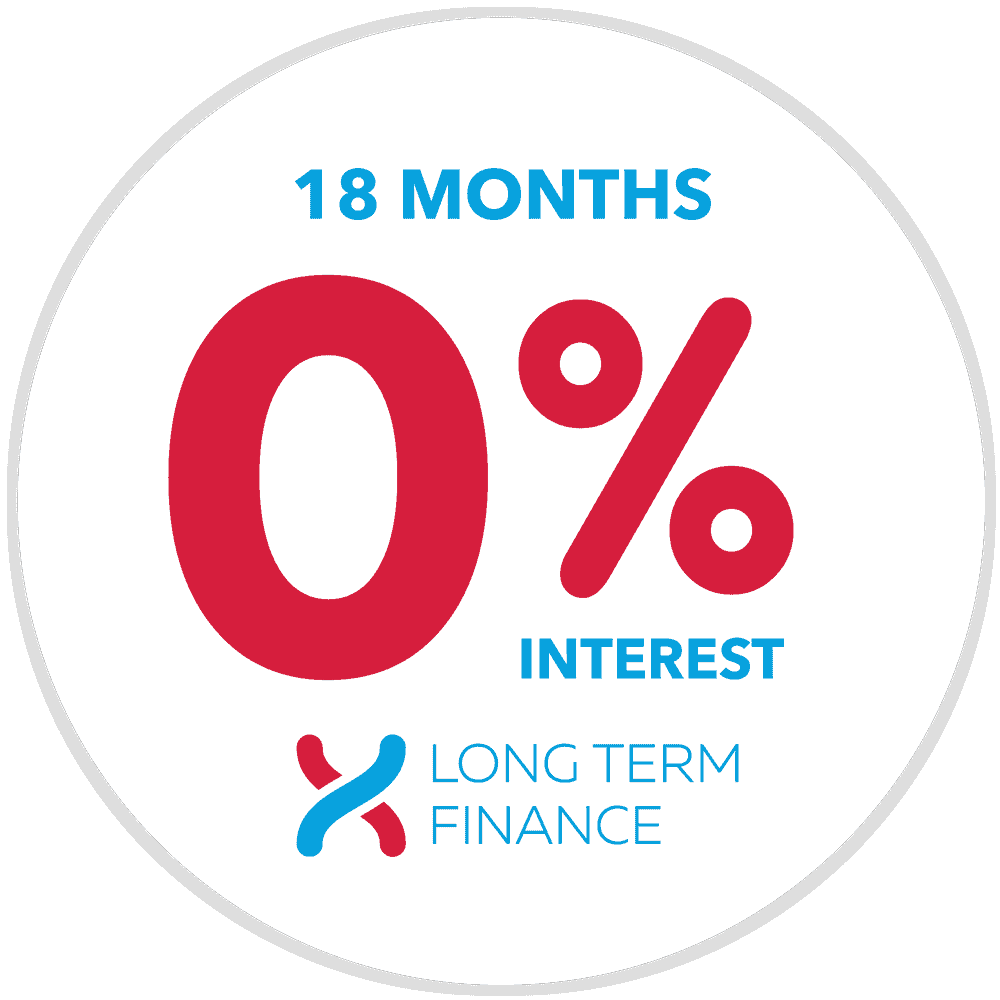
Have you been putting off getting renovations done?
We have partnered with Q Mastercard ® to provide you an 18 Month Interest-Free Payment Option, you can enjoy your new home now and stress less.
Learn More about Interest-Free Payment Options*
*Lending criteria, fees, terms and conditions apply. Mastercard is a registered trademark and the circles design is a trademark of Mastercard International Incorporated.

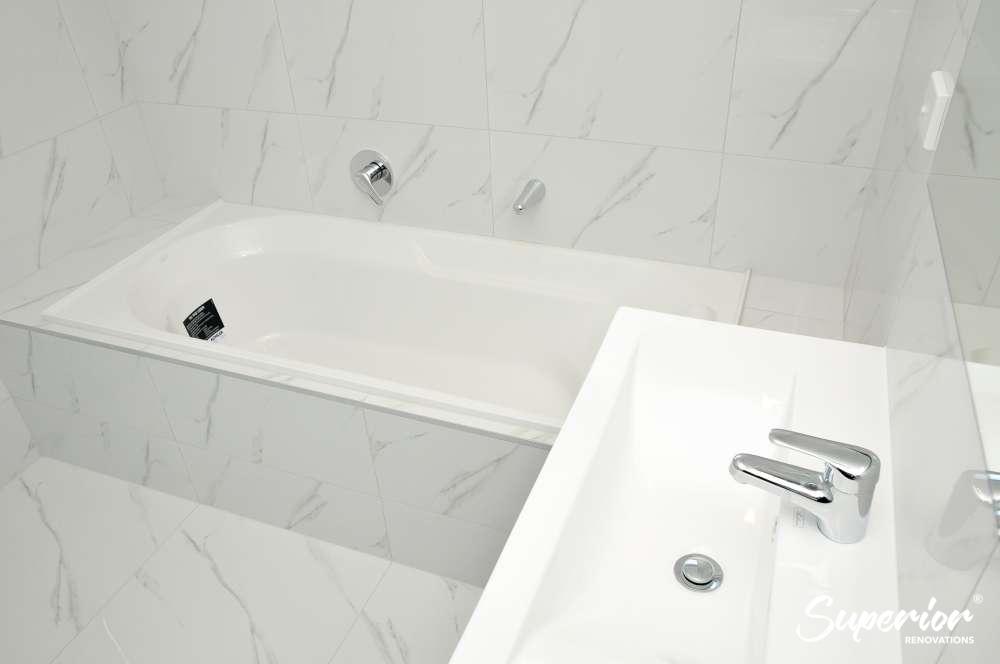
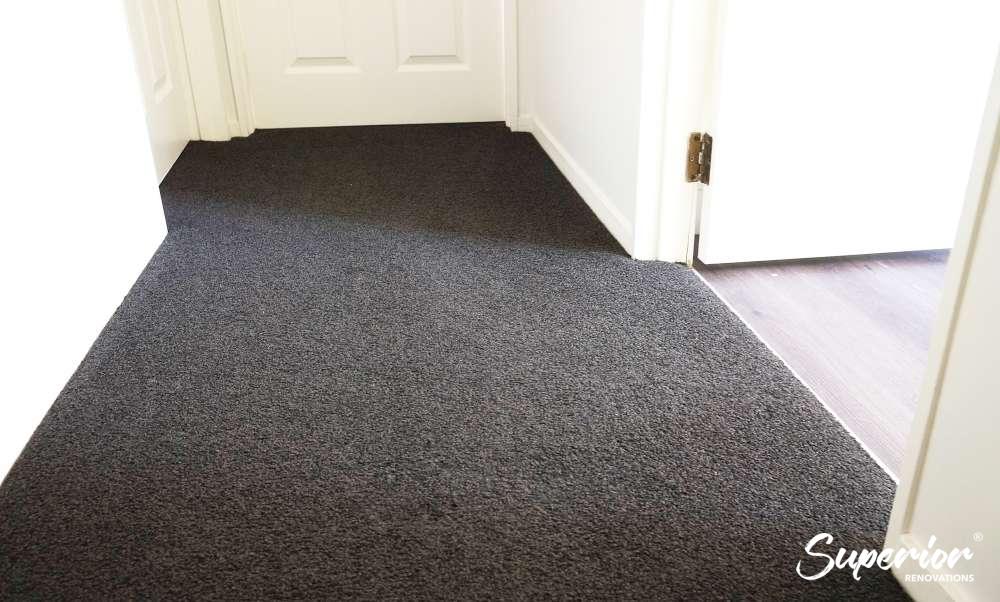
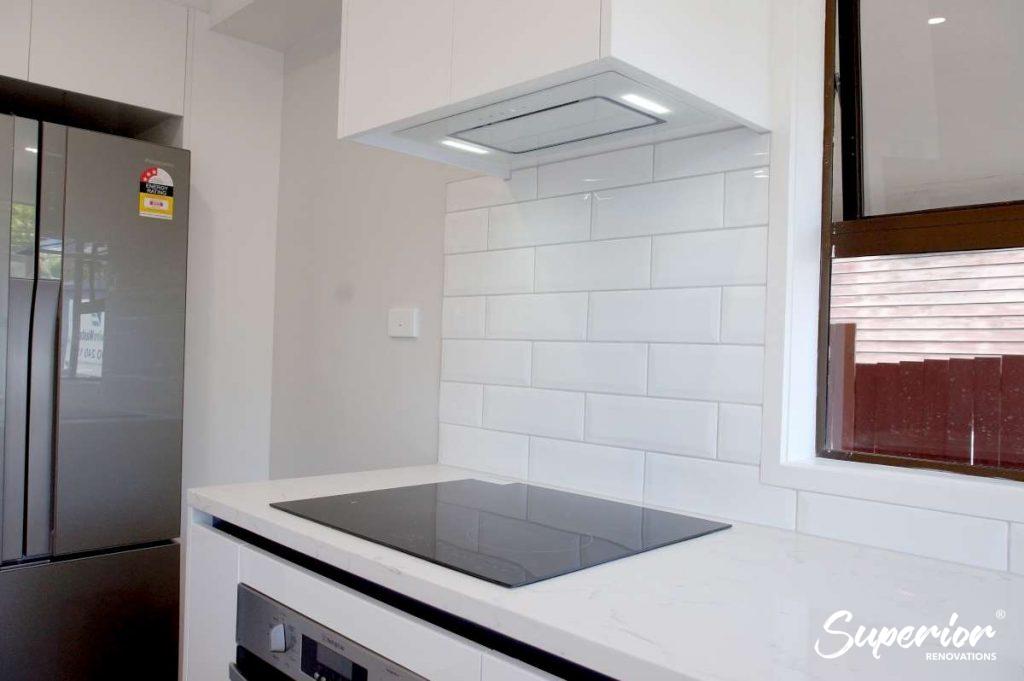
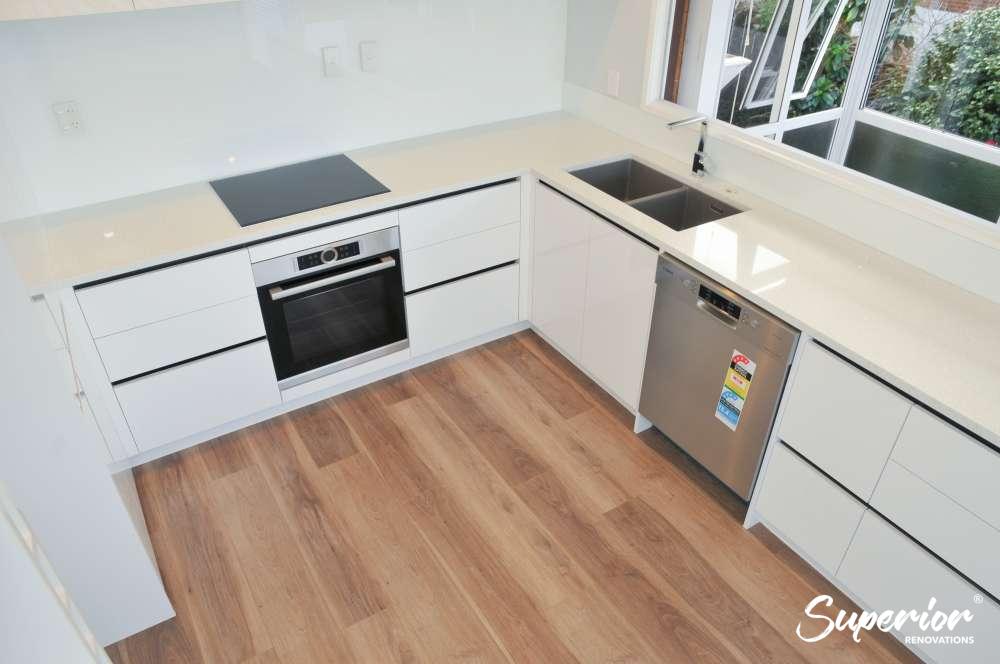
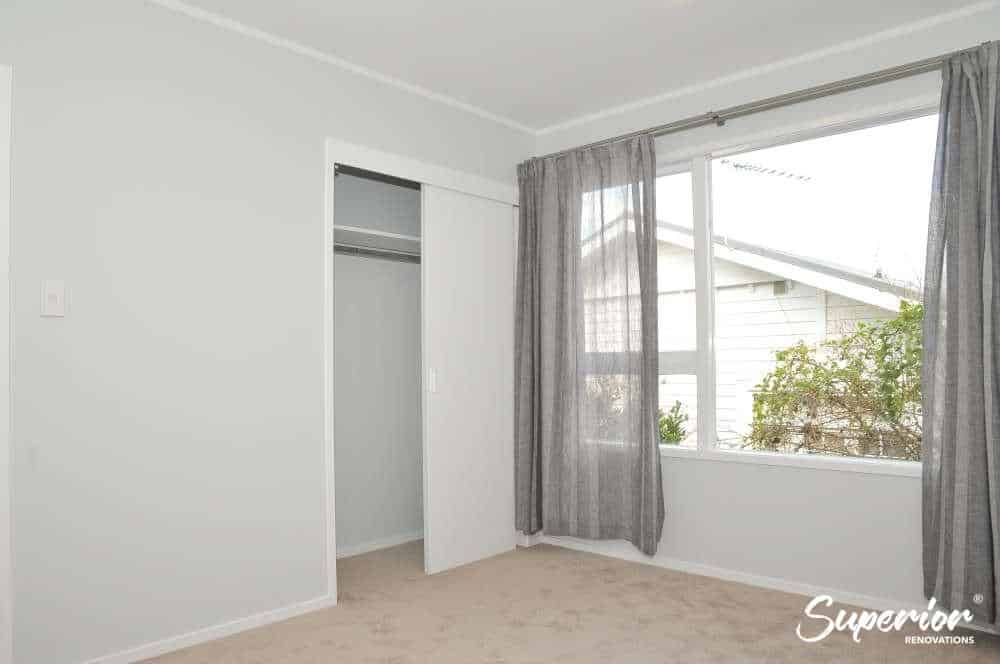








































I really like to appreciate the way you have written this article in depth mentioning all the amount and budget to renovate a complete home… I am glad that I came across such a great article; it’s of much help for us to understand a remodeling cost.
Thanks Leanne, glad it was helpful to you! 🙂
Thank you for publishing this awesome article, it was very helpful, glad I came across it! I will be in touch in the near future definitely.
Thanks William!